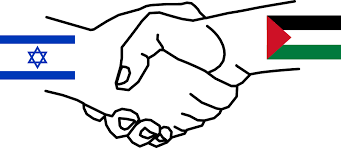Introduction
The Israel-Palestine conflict has once again escalated in 2025, drawing sharp global attention. Amid global polarization, India’s response has been closely watched due to its unique diplomatic ties with both Israel and the Arab world. How does the world’s largest democracy balance strategic interests with moral diplomacy?
🕊️ Historical Background: A Legacy of Neutrality
India has traditionally supported the Palestinian cause since the days of Mahatma Gandhi and Nehru, advocating for a two-state solution. However, over the past two decades, India has significantly deepened strategic, economic, and defense relations with Israel—especially in:
- Defense and cybersecurity
- Agriculture and irrigation tech
- Counter-terrorism
Despite closer Israel ties, India has not abandoned its historic support for Palestine.
🧭 India’s Official 2025 Stance
As of 2025, India’s Ministry of External Affairs has:
- Called for immediate de-escalation and protection of civilian lives on both sides.
- Reiterated its support for a two-state solution under the UN framework.
- Avoided condemning either side directly in official UN votes, choosing instead to abstain or issue neutral statements.
🤝 Diplomatic Strategy: Walking a Tightrope
1. Support for Israel
- India continues joint military exercises and drone tech collaborations.
- Israeli PM visited New Delhi in early 2025, emphasizing mutual counter-terror efforts.
2. Support for Palestine
- India recently pledged $25 million in humanitarian aid for Palestinian civilians.
- Hosted a Palestine Solidarity Forum in New Delhi in March 2025.
- Reaffirmed diplomatic ties with the Palestinian Authority.
This dual approach helps India maintain credibility in both Western and Muslim-majority nations.
🌍 Geopolitical Considerations
- Middle East energy security: Over 60% of India’s oil comes from Arab nations.
- Diaspora diplomacy: Millions of Indians work in Gulf countries.
- Strategic autonomy: India avoids taking sides in global blocs, aiming for issue-based alliances.
This neutral but firm approach reflects India’s non-alignment philosophy 2.0 — guided by national interest and global peace.
🧠 Public Sentiment and Media Reactions
- Indian social media shows a split narrative, with strong support visible for both sides.
- Protests and solidarity marches have taken place in metro cities.
- Media coverage remains mostly neutral but highlights humanitarian concerns.
Conclusion
In 2025, India continues to pursue a balanced, principled, and pragmatic policy toward the Israel-Palestine conflict. While strengthening its ties with Israel for strategic gains, it continues to advocate for Palestinian rights and peaceful coexistence.
India’s stance remains one of cautious diplomacy—grounded in peace, guided by interests, and committed to justice.
































































